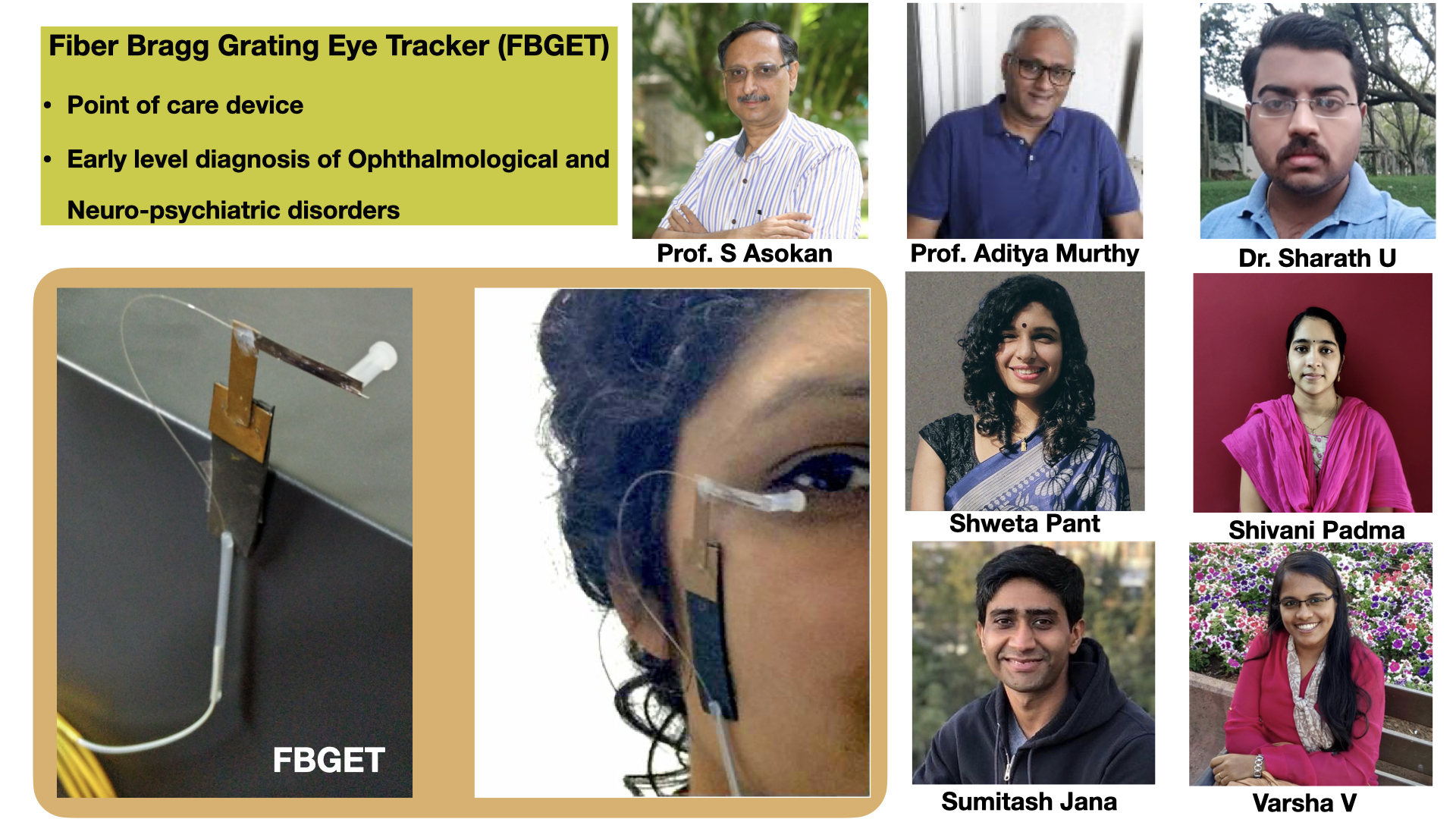Shweta Pant, a PhD student from Department of Instrumentation and Applied Physics and team has received the prestigious SITARE-Gandhian Young Technological Innovation (GYTI) Awards 2020. The team has been awarded for their research work on development of Fiber Bragg Grating based Eye Tracker. The research work was carried out under the guidance of Prof. Sundarrajan Asokan from Department of Instrumentation and Applied Physics. The collaboration with Prof. Aditya Murthy, Centre for Neuroscience, played an indispensable role in this achievement. The team also includes Dr. Sharath Umesh and Srivani Padma from Department of Instrumentation and Applied Physics along with researchers from centre for Neuroscience, Sumitash Jana and Varsha V.
Eye movement evaluation is vital for diagnosis of various ophthalmological and neurological disorders. For example, saccades which is a type of eye movement, are known to be perturbed in numerous neuro-developmental and neuro-psychiatric disorders like Parkinson’s disease, Alzheimer’s disease, Autism, Schizophrenia and Attention-Deficit-Hyperactivity Disorder. The development of easy and affordable method to detect eye movements with high accuracy would tremendously help in the early diagnosis of such disorders and would benefit the society. The developed Fiber Bragg Grating Eye Tracker (FBGET) is a novel, non-invasive, wearable device to acquire the eye movement based on Fiber Bragg Grating (FBG) Sensor. The device can capture the displacement of the eyeball during eyegaze movements effectively. FBGET is an easy-to-implement, hassle free and portable methodology which can be easily employed at the bed side of a patient hence proving to be point of care device. In addition, electrical passiveness, wear-ability, compactness, light-weight, cost-effectiveness and portability makes FBGET effective as an early-level diagnostic device for many ophthalmological and neurological disorders. The FBGET has been filed for Indian patent and is also published in the reputed “Journal of Advanced Research”.



